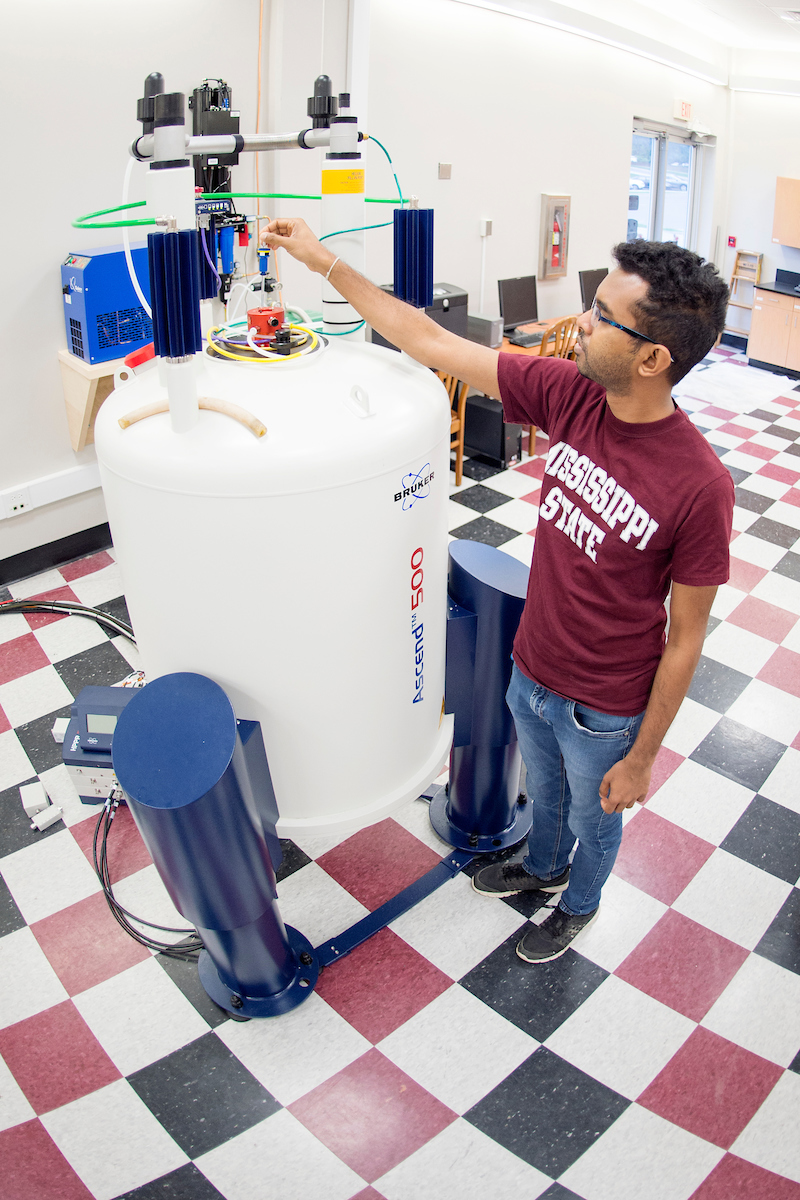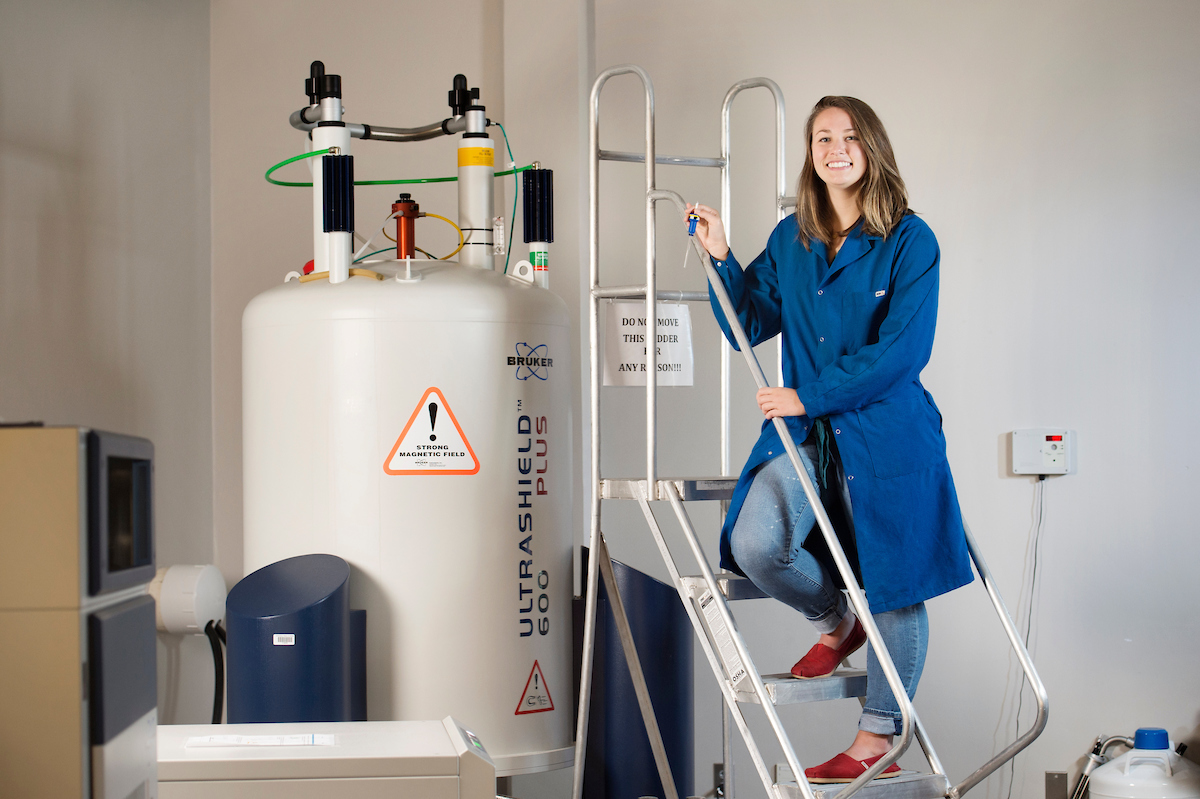NMR Facility
The Mississippi State NMR Center houses Bruker AVANCE III 300 MHz, Bruker AVANCE III 500 MHz, Bruker AVANCE III 600 MHz, and a Bruker EMX-10 EPR Spectrometer. This core magnetic research facility supports the department's faculty and student research efforts. We service center is also committed to supporting on-campus, statewide and regional researchers using NMR in their projects.
NMR is used to study the structure of and interactions between molecules, and it can be applied to chemical kinetics molecular motions as well. It has the added advantage of being a non destructive technique, and it allows for quantitation of molecules in the solution state.
The 300 MHz NMR is equipped with both a broadband (BBFO) probe as well as an inverse triple resonance (TBI) probe. It is a 2-channel system and can be used for detection and decoupling of multiple nuclei, from 109Ag to 31P. A low temperature liquid nitrogen cryostat is available for measurement of samples down to 77 K. (Current rates: $8/hr for MSU users, $11.50/hr for external academic users, and $16/hr for industry use.)

The 500 MHz NMR is normally equipped with a two-channel broadband (BBFO) probe, which supports detection of 19F as well as broadband nuclei down to 109Ag. However, a triple resonance inverse probe can also be installed for biomolecular samples (TXI probe with 1H, 13C, and 15N and XYZ gradients). The console It has three channels for decoupling/detection and also supports three-axis gradients for diffusion measurements and artifact suppression. The 500 MHz system can also be equipped for low-temperature measurements. A 24-position autosampler is available for high throughput data aquisition. (Current rates: $10/hr for MSU users, $14.50/hr for external academic users, and $22/hr for industry use.)

The 600 MHz NMR is equipped with a 4-channel biomolecular cryoprobe (CP-QCI) for observation of 1H while decoupling 13C, 15N, and/or 31P. This system is ideal for detection of samples containing labeled proteins or DNA, but it is also useful for analysis of organic compounds at very low concentrations. While the cryoprobe is normally installed, a two-channel broadband probe (BBO) is also available for this system, and a backup room-temperature biomolecular probe is available (QXI). When the cryoprobe is installed, the supported temperature range is 278-338 K (5-65 °C). (Current rates: $12/hr for MSU users, $17/hr for external academic users, and $24/hr for industry use.)
(Coming Soon) The 800 MHz NMR is equipped with a 3-channel biomolecular cryoprobe (CP-TCI H&F) for observation of either 1H or 19F while decoupling 13C and/or 15N. It also has a tunable broadband probe for multidimensional experiments with transition metals. In addition, the system is equipped with a 24-position sample changer and a variable termpature unit for measurements at temperatures down to -40 °C. This system was purchased as part of the NSF Track 2 MRI program under grant number 2215258. We anticipate installation in the summer of 2023.
The Bruker EMX-10 EPR is an X-band continuous wave spectrometer and is equipped with variable temperature cryostats for operation from 77-350K. This instrument is suitable for the study of organic radicals and paramagnetic transition metal centers. (Current rates: $11/hr for MSU users, $16/hr for external academic users, and $22/hr for industry use.)
Scheduling and Policies
Users interested in recieving training on the NMR instruments should contact Dr. Snow Xu. Dr. Xu will assist you with setting up an account and learning to use the instrumentation. Regular training seminars and NMR classes are also available through the Department of Chemistry. All users are required to adhere to the NMR Facility Policies (see link in side bar). Users who violate the policies risk losing their access to the facility.
Instrument scheduling is done using the Faces Scheduling System, hosted at the University of Georgia.
Facility Manager Wanted!
As part of our recent NSF MRI award, we will hire a full-time NMR facility manager to support users, maintain the instruments, help implement pulse programs, and handle remote samples. This position is currently working its way through our business office. If you would like to be notified when the position is listed, please contact Nick Fitzkee (nfitzkee@chemistry.msstate.edu)